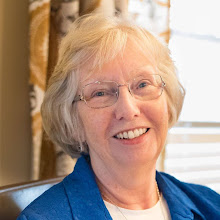Some of you will ask, "What's a dial?" The rest of us will remember the deep voice of the announcer coming over the airwaves commanding us to stay tuned in to the television whose channel selections were controlled by a round device on the front of the television. The device had sequential numbers circling its outer edge. Use of this device required. . .are you ready?. . .standing up, walking to the television, and rotating the device to the desired number of the channel that you wished to view. It was called a "dial".
If you count the regional PBS channel (a "snow" filled picture with static-laced audio), there were four channels to watch. It didn't take long to decide what to watch, unless someone had to go outside to rotate the antenna in an effort to improve the signal reception. When the announcer commanded at a commercial break not to touch the dial and leave the program, it was easier just to obey than to get up and change the channel. What a bunch of fossils we were.
Today, thanks to cable, I have hundreds of channels to choose from, many being broadcast in eye-popping high definition. There are music channels, movies, documentaries, too many 24-hour news channels, and cooking channels. Yet there isn't much to watch, and if there is something interesting on, chances are good that you've already seen it because it's been shown so many times you could repeat the script verbatim.
In our always changing economy, one of the jobs that will soon be obsolete is that of TV writer. There is no longer the team of writers spitting out reams of dialogue, action, and jokes. A look at this week's schedule for NBC, for example, gives us two episodes of Dateline, two re-runs of Who Do You Think You Are?, four showings of Law and Order in its various incarnations, eight game shows/reality shows (it's getting harder to differentiate between these two genres), Harry's Law on Monday night (is that still on?), and the Thursday night line-up of what they call sit-coms, although these sit-coms bear absolutely no resemblance to the comedies I enjoyed 40 years ago. They're more like sit-down-before-you-throw-up-from-this-trash.
CBS isn't much better with its serial episodes of NCIS and CSI. It also has Thursday night comedies followed by Big Brother, which is on three nights a week and often leads me to comment, "Oh, brother." The big comedy line-up for CBS is on Monday night and includes the infamous Two and a Half Men. Even before the Charlie Sheen dust-up, I gave up on that show, as well as Mike and Molly. I watched that show a few times when it debuted, but it is so nasty that even I, an open-minded and accepting individual, could not tolerate it. That leaves a couple of cop shows and the new summer hit, a reality show with David Hasselhof.
Comedies are scheduled on ABC on Wednesday night. This is the network which came up with The Bachelorette and The Bachelor. The former is on their summer schedule. They only have six reality shows on this summer. ABC is also notorious for airing repeats of the Disney movies (Disney owns ABC) like Harry Potter. On the schedule this week for Tuesday: "Program Coming Soon", demonstrating how perplexed the American Broadcasting Corporation must be by the conundrum of how to produce an original television show.
Considering my viewing options, I find myself watching those channels that broadcast old shows. I've watched complete episodes, from the pilot to the series "finale", of Seinfeld, Frasier, Mash, The Andy Griffith Show, George Lopez, and Reba. I've found out what it is that makes everybody love Raymond, and I've refreshed my memory about the 70s (That 70s Show).
Not that programming is so ingenious on these channels either. They simply obtain the rights to a show that was outrageously popular in its heyday and show it for two hours every day. Over and over. And over. Neither the big three broadcasters nor the cable channels are spending much money on program development or script writiers.
And yet, I am tuned in. I think I'll go outside for a walk.

No comments:
Post a Comment